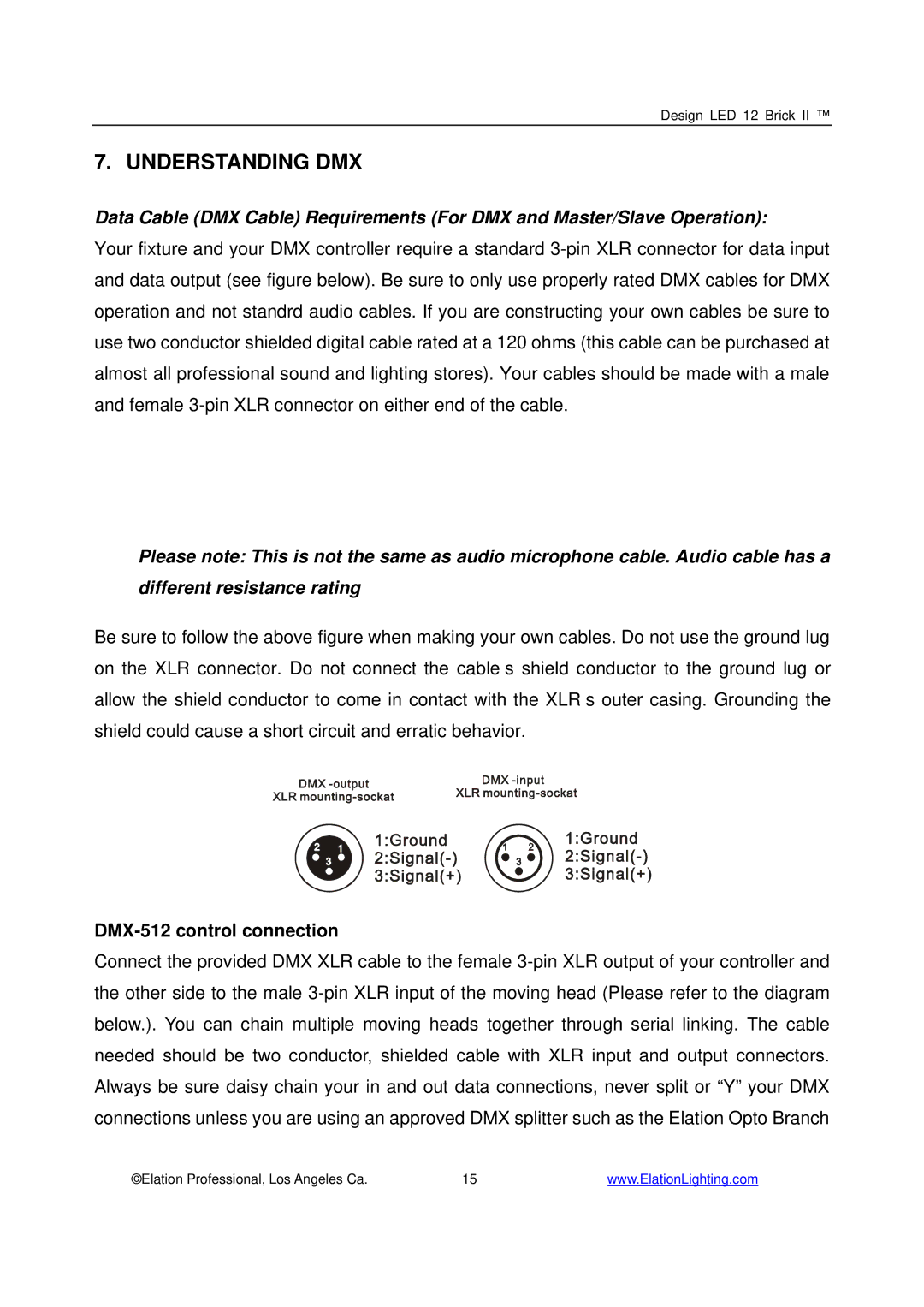Design LED 12 Brick II ™
7. UNDERSTANDING DMX
Data Cable (DMX Cable) Requirements (For DMX and Master/Slave Operation):
Your fixture and your DMX controller require a standard 3-pin XLR connector for data input and data output (see figure below). Be sure to only use properly rated DMX cables for DMX operation and not standrd audio cables. If you are constructing your own cables be sure to use two conductor shielded digital cable rated at a 120 ohms (this cable can be purchased at almost all professional sound and lighting stores). Your cables should be made with a male and female 3-pin XLR connector on either end of the cable.
Please note: This is not the same as audio microphone cable. Audio cable has a different resistance rating
Be sure to follow the above figure when making your own cables. Do not use the ground lug on the XLR connector. Do not connect the cable’s shield conductor to the ground lug or allow the shield conductor to come in contact with the XLR’s outer casing. Grounding the shield could cause a short circuit and erratic behavior.
DMX-512 control connection
Connect the provided DMX XLR cable to the female 3-pin XLR output of your controller and the other side to the male 3-pin XLR input of the moving head (Please refer to the diagram below.). You can chain multiple moving heads together through serial linking. The cable needed should be two conductor, shielded cable with XLR input and output connectors. Always be sure daisy chain your in and out data connections, never split or “Y” your DMX connections unless you are using an approved DMX splitter such as the Elation Opto Branch
©Elation Professional, Los Angeles Ca. | 15 | www.ElationLighting.com |

